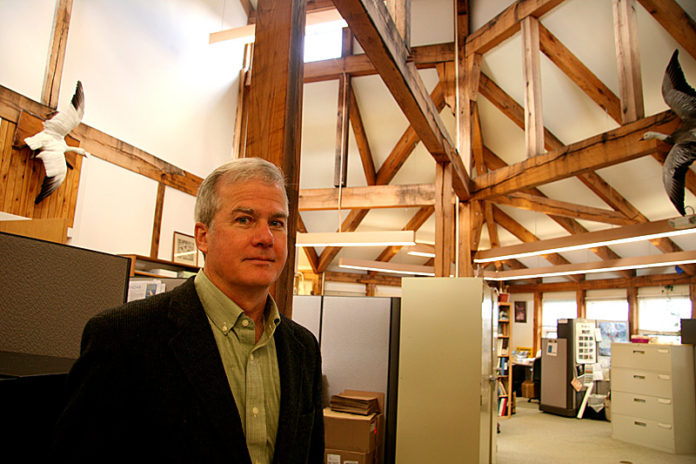
Attending to a need is the function typically fulfilled by a nonprofit. Seldom are their own needs ever taken into consideration by those outside the organization. After all, many people consider nonprofits fully self-sufficient and well-funded through rigorous planning, expert strategy and a resourceful staff.
By starting The Non-Profit Exchange, The Rhode Island Foundation has answered this perception with an emphatic “no.” Nonprofits aren’t always in operational utopia. No, they don’t possess limitless tools and funds to get the job done right. And they aren’t exempt from scratching their heads trying to figure out where they might find the very thing they’re looking for.
Since its “soft” launch in September 2011, the exchange has helped Rhode Island nonprofits connect with other nonprofits seeking office space, or who possibly have some to share, who may need equipment, or are looking to connect and share ideas.
“Just like Craigslist,” said Jill Pfitzenmayer, The Rhode Island Foundation’s vice president of the Initiative for Nonprofit Excellence, “people use it.”
A quick scroll through the site shows seven categories serving the gamut of business needs. All someone need do is identify their want or post a requirement and the network will answer their call.
Leigh Reposa is program manager with the Rhode Island Student Assistant Services, Youth Suicide Prevention Program and one of the first to use this free service. She became aware of its existence while attending The Rhode Island Foundation’s Non-Profit Emerging Leaders program through the Initiative for Non-Profit Excellence.
“At the time,” recalled Reposa, “I was thinking: wouldn’t it be great to have a centralized tool for nonprofits to use? And here it was … the same idea, and ready for launching.” Her other idea was to have an open-board network. The exchange has that one covered too. One such posting, with the heading “Fresh Blood” reads, “Wondering if any new Board member cultivation is going on that I should know about. [The Rhode Island Foundation] did a get-together for 20-somethings, I believe, about a year ago. Has there been another?” The response: “Thanks for your questions. Actually, the INE does continue to hold the Energizing the Sector events to introduce nonprofits to young professionals interested in serving on a board. We just held an event for the environment sector last week. We are planning to hold a night for arts groups early next year. Stay tuned.”
Reposa’s posting was a search for training spaces: “I’m always looking for spaces. More often than not they are public spaces that either aren’t flexible to use or have a number of stipulations that come with them.” Six days later an organization responded with a space for a small fee.
Pfitzenmayer puts the value of the service in terms of savings not expenditure: “Time is saved, connecting people. Also, organizations don’t have to spend their money on taking out an ad, when they’re looking to save whatever resources they have.” Without the exchange, Reposa’s search would have involved using more of her time and that of the organization’s staff.
“For a lean nonprofit, whose staff is already at capacity and that continues to face budget cuts, this tool will be critical,” she said. “I came from corporate America and had been used to all these tools. The Rhode Island Foundation just hit the easy button.”
The most vital aspect of this resource is to publicize what, until recently, was kept private. “We’ve been thinking about this idea for a long time,” said Pfitzenmayer. “I can’t tell you how many times I’ve been asked ‘do you know of a …’ Well, you finish the sentence.”
Now, thanks to the exchange, in order to receive all you need do is ask. •












